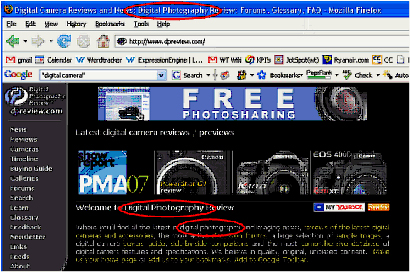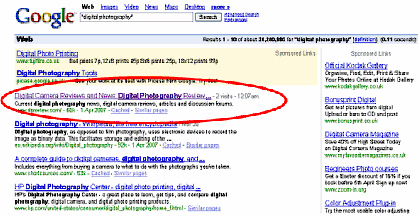
Keyword Basics
So you've done all your keyword research and you've found the best keywords for your website. How do you use these keywords to improve your website copywriting so that you rank well on the search engines and attract the type of customers that you are after?
Key points
- From the keyword lists you have chosen for your site, pick a primary and a secondary keyword that you’ll want to rank well for with the article.
- Write the title of the article making sure that you include the primary keyword in the title.
- Write the description tag using both the primary and secondary keywords.
- Write the first paragraph which should be a summary of the overall article and should include both primary and secondary keywords.
- Map out the structure of the article, writing headings and subheading that each contain keywords.
- Think about the internal and external links that you might point people to. The linking text should be keyword rich.
Example of good website copywriting
Well, let’s start with an example of a well-written and highly ranked website in a competitive sector – digital cameras. I’ll go to Google and do a search, say for “digital camera”: at the time of writing, here are the results:

See how the titles of the top organic searches all include the search term ‘digital camera’. The words that appear in the title are completely within your control: the title tag is the most important place to put your primary keyword.
So the top organic result comes from www.dpreview.com who have succeeded against 63 million competing pages – a great performance. So what can we learn by following the link?
Let’s have a look:

Look at how the keyword ‘digital camera’ has been used in the title, the heading, linking text and the body copy.
This is a well optimized page. But have a closer look at the title – it contains another important keyword, ‘digital photography’. This keyword is also used well in the website copy:

So how does this page perform for the search ‘digital photography’? Does the page rank as well as it did for ‘digital camera’?
Here are the results from Google:

Top again with over 24 million competing web pages. A very nice piece of work and one you should try to emulate. The person writing this copy really knew what they were doing.
Using keywords in your web copy
Here are the steps I’ll go through to create a piece of web copy.
1. From the keyword lists you have chosen for your site, pick a primary and a secondary keyword that you’ll want to rank well for with the article.
2. Write the title of the article making sure that you include the primary keyword in the title. You can also try to fit in the secondary phrase but if you find it hard to do so and still maintain good English, then don’t worry about the secondary keyword in your title. I try and keep the title to around 50 characters in length.
3. Write the description tag using both the primary and secondary keywords. This should describe what the article is about and should be around 200-250 characters long.
4. Write the first paragraph which should be a summary of the overall article and should include both primary and secondary keywords. If you’re not sure about how to do this, have a look at my first paragraph here or study good newspaper writing. You’ll find that journalists tend to summarize the story in the very first paragraph.
5. Next, map out the structure of the article, writing headings and subheading that each contain keywords. Not only does this help you write good search engine copy, but it focuses your mind on what you really want to say and the quality of your writing will improve. In this article, for example, here’s the structure I’ve followed:
- Using keywords in website copywriting
- Example of good website copywriting
- Using keywords in your web copy – 6 steps
- Improving your website copywriting skills
- Internal and external resources to link to.
6. Finally, think about the internal and external links that you might point people to. The linking text should be keyword rich.
Improving your website copywriting skills
This article has given you some tips and a step-by-step process to follow. However, you’ll get nowhere unless you put some of this advice into action and then see what happens to your search engine traffic. Then build on what works and discard what doesn’t.
My favorite definition of an expert is “someone who has made more mistakes than anyone else”. So don’t be afraid – get writing, get publishing, measure what happens – and then do it even better next time.